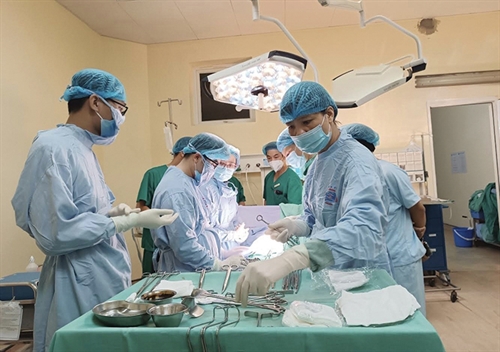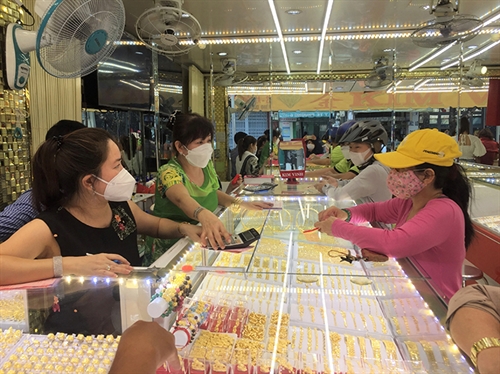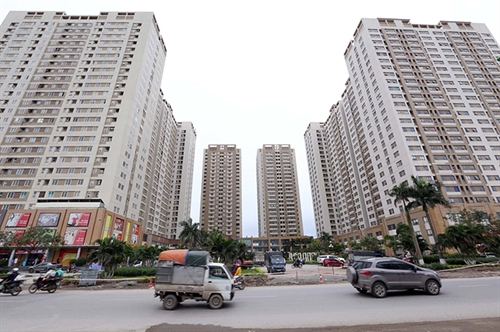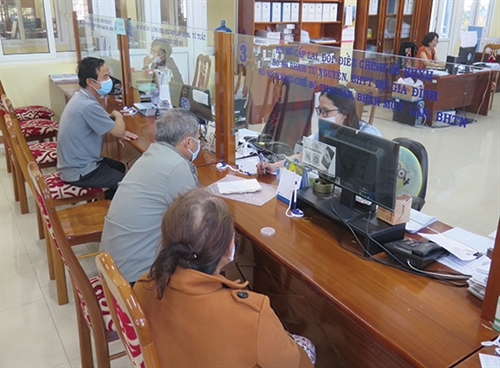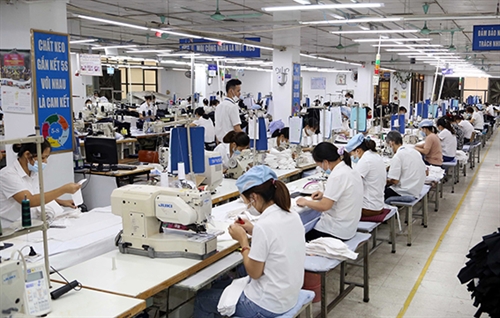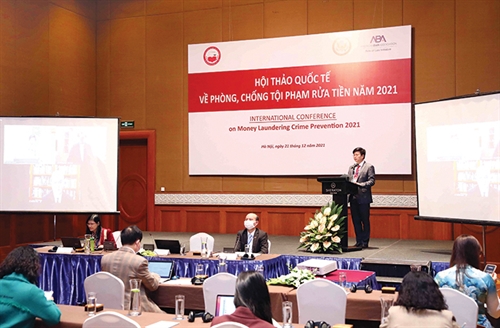According to official statistics, some 40,000 public employees or 2 percent of the whole system’s payroll quit their jobs in the period from January 2020 to June 2022. The figures were approximately 16,400 in the education sector and 12,100 in the health sector. Mass resignation occurred mostly in localities with advantageous socio-economic conditions, especially those having large industrial parks and export processing zones like Ho Chi Minh City, Dong Nai, Hanoi, Binh Duong, Ba Ria-Vung Tau, Long An and Can Tho.
“I gave up!,” said a medical worker who just quit his job at a public hospital in Ho Chi Minh City’s Thu Duc city.
“The work has been overloaded for years, especially during the two years of the COVID-19 pandemic. I feel sorry for myself,” the man, who wished to remain anonymous, was quoted by the Viet Nam News daily as saying.
More than 1,200 km away from Ho Chi Minh City, doctor P., a senior physician of the Vietnam-Cuba Friendship Hospital in Dong Hoi city, Quang Tri province, was also considering resigning from his job. “I will probably quit my job to open my own clinic. So, I can earn better income while the job is less stressful,” said doctor P.
The two above-mentioned cases are not particular phenomena. According to official statistics, some 40,000 public employees or 2 percent of the whole system’s payroll quit their jobs in the period from January 2020 to June 2022. The figures were approximately 16,400 in the education sector and 12,100 in the health sector. Mass resignation occurred mostly in localities with advantageous socio-economic conditions, especially those having large industrial parks and export processing zones like Ho Chi Minh City, Dong Nai, Hanoi, Binh Duong, Ba Ria-Vung Tau, Long An and Can Tho. Meanwhile, in less developed areas such as the Northwestern region and Central Highlands, there are few public employees quitting their jobs. In Ho Chi Minh City alone, nearly 6,700 public employees, including 2,500 teachers and education administrators and 2,000 health workers, resigned over the last two and a half years.
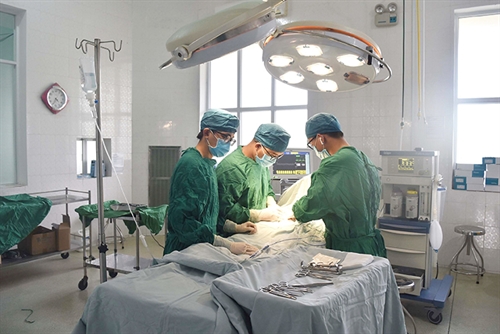 |
| Despite their heavy workload, medical workers’ salaries remain unsatisfactory__Photo: Nguyen Dung/VNA |
Why do public employees quit their jobs?
Addressing a plenary meeting of the National Assembly during its ongoing year-end session, Minister of Home Affairs Pham Thi Thanh Tra pointed out several reasons behind the situation of which pressure of work, especially during the COVID-19 pandemic, unsatisfactory pay, and lack of career opportunities can be cited as the most prominent ones.
Let’s take the health and education sectors as examples. Since the outbreak of the COVID-19 pandemic, health workers turned to be the frontline force in disease prevention and control. When the number of new cases increased, the work intensity became extremely hard, especially for health workers in crowded localities like Ho Chi Minh City and several southern provinces. In addition, medical staffs had to work in dangerous conditions, with a high risk of contracting the disease, and in some cases it can be life-threatening. This had deeply affected the psychology and working motivation of health workers. As for the education sector, the pandemic placed the whole system under the pressure of immediately changing the working method from in-person to online, requiring sustained efforts of teachers and education administrators to adapt themselves and help their students get used to online teaching and learning.
However, despite the work pressure, the salaries and allowances seem unsatisfactory. According to a report recently submitted by the Vietnam Health Trade Union to the Vietnam General Confederation of Labor, a medical graduate, if choosing to work for a public medical establishment, will receive nearly VND 4.9 million (USD 200) per month. The amount consists of a salary of approximately VND 3.5 million (140 USD) and an allowance of VND 1.4 million (USD 56 USD), equaling 40 percent of the salary, exclusive of the compulsory social insurance and health insurance premiums. Meanwhile, private hospitals’ staffs are often entitled to a pay triple or quadruple, or even five or six times in some places higher than the income of their colleagues in public hospitals.
Another reason behind the resignation of public employees in the health sector is the lack of medicines and modern equipment to deploy high technology and even common medical tools and protective equipment, which is attributable to shortcomings in public procurement regulations applicable to public medical establishments. Against that backdrop, the strong development of private hospitals and clinics with modern and friendly working environment makes them more attractive in the eyes of medical workers in public hospitals.
Hence, it is very difficult to retain health workers working in public health facilities, the report said.
The situation is the same for the education sector.
Solutions
According to Minister Tra, the most fundamental solution to mass resignation of public employees is increasing their incomes. In light of this, the Government has submitted to the National Assembly a plan on increase of base salary from current VND 1,490,000 (nearly USD 60) per month to VND 1,800,000 (USD 72). Once the new base salary level is approved, graduates entering the state sector will receive a salary of VND 4,200,000 (USD 170) while the highest pay would reach VND 14,400,000 (USD 580).
Most National Assembly deputies agreed with the Government’s plan.
Vu Tien Loc, a deputy from Hanoi, stressed the importance of the plan, saying it could be seen as an investment to improve work quality and discipline toward higher productivity on the one hand and to increase spending and create positive impacts on aggregate demands on the other hand.
Meanwhile, Head of the Prime Minister’s Economic Advisory Group Nguyen Duc Kien argued Vietnam’s positive economic performance is the main factor for the Government to push for higher base salary. “This year, Vietnam’s GDP growth rate is estimated at around 8 percent, which would create favorable conditions for the authorities to raise salaries for employees in the public sector,” he said.
Particularly for health workers, the Ministry of Health proposed and received the Government’s nod to revising Decree 56 of 2011 on occupation-based allowances for civil servants and public employees working at public medical establishments. Accordingly, the level of occupation-based allowances for preventive medicine and grassroots health workers would increase from 40 percent to 100 percent of their salaries; meanwhile, those engaged in epidemic prevention and control would also be entitled to additional allowances.
In another move, when discussing the draft revised Law on Medical Examination and Treatment, National Assembly deputy Hoang Van Cuong said mass resignation of medical workers was, to some extent, a regulatory failure in management of public hospitals.
“The current management mechanism impedes and disallows public hospitals to tap and promote their existing potential and advantages,” Cuong said, adding that the draft law should devote a separate chapter to prescribing finances and assets of health establishments.
Specifically, it is necessary to clearly define the autonomy regime empowering public hospitals to decide on their own medical examination and treatment activities as well as on matters relating to the organizational apparatus and personnel, use of revenue sources, and payment of salaries and remunerations to employees.
In addition, there should be regulations on asset management so as to enable hospitals to proactively select the mode of investment in facilities and equipment serving medical examination and treatment activities, either through procurement and hiring of equipment or by entering into cooperation contracts with other organizations and individuals.
